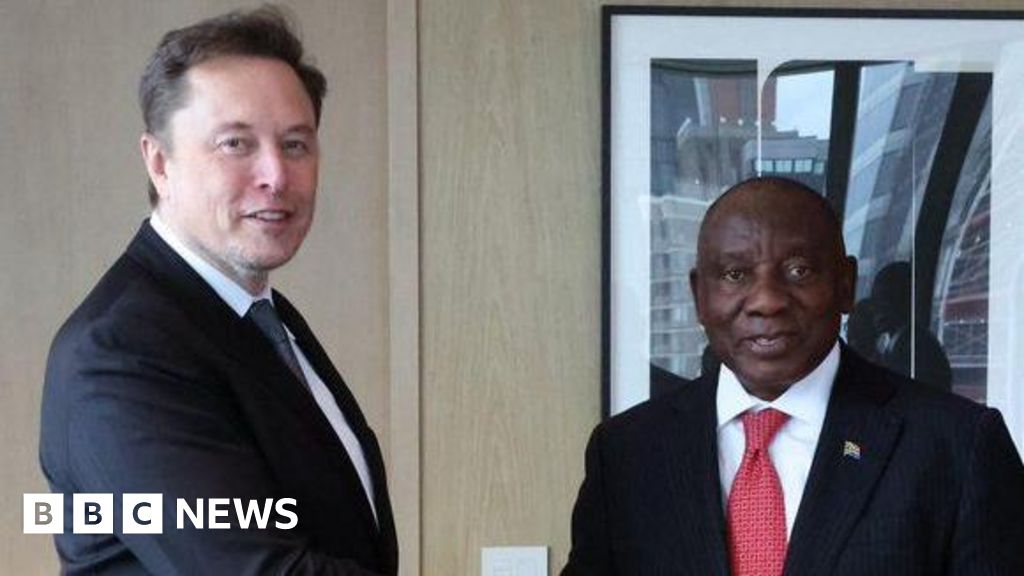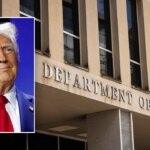South Africa’s President Cyril Ramaphosa has moved to defuse a row with the new US administration over a new land law by speaking to Elon Musk.
Mr Musk is a close adviser to US President Donald Trump, who on Sunday threatened to cut all future funding to South Africa over allegations that it was confiscating land and “treating certain classes of people very badly”.
The South Africa-born tech billionaire joined in the criticism asking on X why Ramaphosa had “openly racist ownership laws”.
Ramaphosa’s office said that in the call to Mr Musk the president “reiterated South Africa’s constitutionally embedded values of the respect for the rule of law, justice, fairness and equality”.
Land ownership has long been a contentious issue in South Africa with most private farmland owned by white people, 30 years after the end of the racist system of apartheid.
There have been continuous calls for the government to address land reform and deal with the past injustices of racial segregation.
In his initial response to Trump, the South Africa’s president said that his “government has not confiscated any land”.
On Sunday, Trump wrote on his social media platform Truth Social: “I will be cutting off all future funding to South Africa until a full investigation of this situation has been completed!”
He later said, in a briefing with journalists, that South Africa’s “leadership is doing some terrible things, horrible things”.
“So that’s under investigation right now. We’ll make a determination, and until such time as we find out what South Africa is doing — they’re taking away land and confiscating land, and actually they’re doing things that are perhaps far worse than that.”
South Africa’s new law allows for expropriation without compensation only in circumstances where it is “just and equitable and in the public interest” to do so.
This includes if the property is not being used and there is no intention to either develop or make money from it, or when it poses a risk to people.
Land ownership has been a burning issue in South Africa for more than a century. In 1913, the British colonial authorities passed legislation that restricted the property rights of the country’s black majority.
The Natives Land Act left the vast majority of the land under the control of the white minority and set the foundation for the forced removal of black people to poor homelands and townships in the intervening decades until the end of apartheid three decades ago.
Anger over these forced removals intensified the fight against white-minority rule.
In 1994, leader of the African National Congress (ANC) Nelson Mandela became the country’s first democratically elected president after all South Africans were given the right to vote.
But until the recently passed law, the government was only able to buy land from its current owners under the principle of “willing seller, willing buyer”, which some feel has delayed the process of land reform.
In 2017, a government report said that of the farmland that was in the hands of private individuals, 72% was white-owned. According to the 2022 census white people make up 7.3% of the population.
However, some critics have expressed fears that the new land law may have disastrous consequences like in Zimbabwe, where seizures wrecked the economy and scared away investors.







